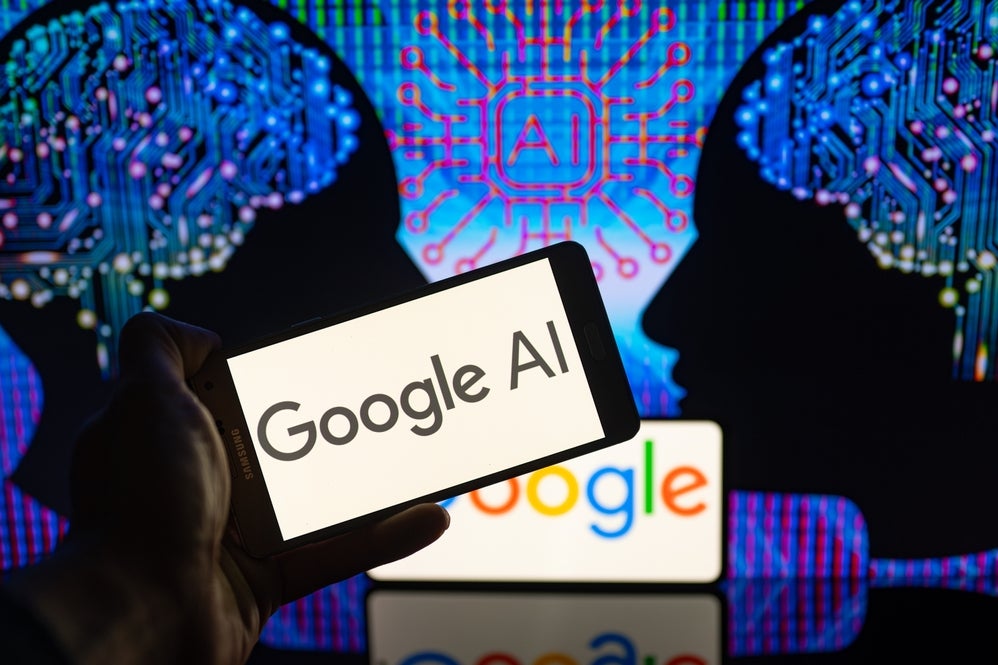Google To Launch AI Chatbot For Medical Field: Can AI Replace Doctors Successfully?
Google’s AI Chatbot called Med-PaLM 2 is capable of answering medical questions, to be tested in hospitals.

Google, the technological behemoth renowned for its cutting-edge goods and services, has just announced a new effort in the medical realm incorporating artificial intelligence (AI). The startup has created an AI chatbot called Med-PaLM 2, which is presently being tested in a number of hospitals. The chatbot’s goal is to deliver reliable medical data as well as answer questions about healthcare. While this breakthrough has significant promise, questions about accuracy and data privacy remain.
Med-PaLM 2 was revealed by Google at the Google I/O 2023 event, when CEO Sundar Pichai unveiled the company’s latest large language model (LLM) with increased multilingual, coding, as well as reasoning abilities. Pichai stated that Med-PaLM 2 would be incorporated into Google Workspace apps and designed exclusively for medical needs. The chatbot attempts to overcome the deficit in healthcare accessibility, especially within areas where medical professionals are only a few.
The Stage of Testing along with Prospective Advantages:
Med-PaLM 2 continues to be going through thorough evaluations in famous research facilities such as the Mayo Clinic since April. Google claims that the AI chatbot’s capacity to offer accurate medical information would be extremely valuable, particularly in nations with limited access to doctors. The training data for Med-PaLM 2 is made up of medical expert demonstrations, which Google claims makes it more competent at participating in healthcare-related discussions than typical chatbots similar to Google Bard, ChatGPT, or Bing AI.

The Precision Test by Google-
While Med-PaLM 2 has the potential to transform healthcare interactions, a research investigation undertaken by Google and published in May showed accuracy difficulties common in large language models. According to the study, named “Towards Expert-Level Medical Question Answering with Large Language Models,” Med-PaLM 2 had lesser accuracy and featured more unrelated content than responses provided by real doctors. The study did underline, however, that the chatbot displayed outstanding thinking ability, offered replies that were backed up by acceptance, and proved adequate comprehension.
Google gives importance to data Security and Encryption-
Google wants to accord importance to confidentiality of information by giving testing partners access to their encrypted data. Organizations evaluating Med-PaLM 2 will maintain managerial and ownership authority over the data created by the chatbot, as reported by a well-known journal. This strategy ensures customers that Google is not going to have unauthorized access to the data of their collaborators, alleviating worries related to possible confidentiality breaches.
The Journey Ahead and possible challenges-
Greg Corrado, Google’s senior research director, recognized that Med-PaLM 2 continues to be in its early phases and stated that he was unlikely to use it for his own family’s “healthcare journey.” He believes, nevertheless, that the chatbot has the ability to double AI’s contributions to healthcare by concentrating on the domains where AI may provide major advantages. Google’s ongoing attempts to improve Med-PaLM 2’s accuracy and usefulness are critical to its effective incorporation into medical practices.
Google’s Med-PaLM 2 marks a significant advancement in the use of artificial intelligence in the medical arena. The capacity of the AI chatbot to deliver medical data as well as answer healthcare-related questions demonstrates its potential to overcome the worldwide healthcare accessibility gap. However, as seen in big language models, accuracy issues continue.
Data privacy is still a major worry, but Google’s ongoing dedication to encryption and securing partner information represents a step in the right direction. As the testing phase of Med-PaLM 2 advances, it is intended that enhancements will be made to assure its dependability and utility in real-world medical circumstances.

AI has emerged as a viable tool even in the medical industry, with the potential to enhance evaluations, therapy, as well as patient care. However, given the complexity and complexities of the human body, the use of AI in healthcare must be addressed with prudence. While artificial intelligence has enormous potential, it is critical to appreciate the problems and limits connected with its application.
AI algorithms are primarily reliant on data-driven analysis and patterns, which might be constrained in the face of the human body’s tremendous complexity. The numerous genetic, environmental, and behavioral elements that determine an individual’s health can provide substantial problems to AI systems. Oversimplification or generalization of medical problems can result in incorrect diagnosis, possibly jeopardizing patient safety and treatment.
This is the reason medical professionals in real life take into account a variety of criteria, such as history of the patient, medical expertise, and unique circumstances. While AI can help provide insights as well as recommendations, it should never take the place of healthcare professionals’ knowledge and complex decision-making. Using AI systems without sufficient monitoring might have major ethical consequences, such as the possibility of bias, prejudice, or disregarding vital information.
To enable the appropriate and productive application of AI in healthcare, ethical issues, quality of data, confidentiality, transparency, and legal frameworks must be carefully considered. By carefully navigating these difficulties, we may harness the potential of AI while retaining the human touch and knowledge required for good medical treatment.




